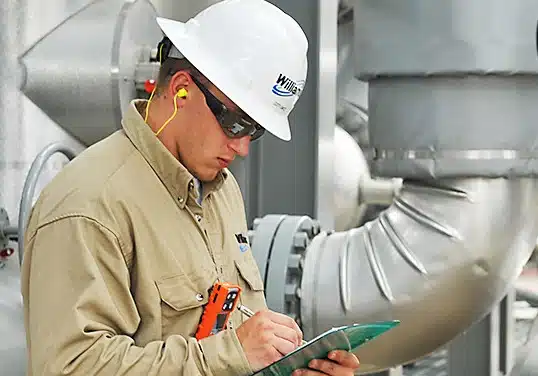API 510, 570, and 653 are standards set by the American Petroleum Institute (API) for the inspection, repair, and maintenance of different types of equipment used in the petroleum and chemical industries. Let’s break down each one:
API 510: Pressure Vessel Inspection Code
- Purpose: This standard provides guidelines for the inspection, repair, alteration, and rerating of in-service pressure vessels.
- Key Points:
- Inspection Frequency: Determines how often pressure vessels should be inspected based on their condition and the materials they contain.
- Inspection Techniques: Describes various nondestructive testing (NDT) methods such as ultrasonic testing, radiographic testing, and visual inspection.
- Repair and Alteration: Offers guidelines on how to properly repair or alter pressure vessels to ensure they remain safe for use.
- Record Keeping: Emphasizes the importance of maintaining accurate records of all inspections, repairs, and alterations.
API 570: Piping Inspection Code
- Purpose: This standard focuses on the inspection, repair, and alteration of in-service piping systems.
- Key Points:
- Inspection Plans: Guides how to create and implement inspection plans based on the risk and condition of the piping system.
- NDT Methods: Similar to API 510, it outlines various NDT methods suitable for inspecting piping systems.
- Repair and Maintenance: Provides standards for safe and effective repair and maintenance of piping systems.
- Fitness-for-Service: Discusses how to evaluate whether a piping system is fit for continued service or needs repairs.
API 653: Tank Inspection, Repair, Alteration, and Reconstruction
- Purpose: This standard applies to the inspection, repair, alteration, and reconstruction of aboveground storage tanks used in the petroleum and chemical industries.
- Key Points:
- Inspection Frequency: Sets intervals for inspecting storage tanks based on their age, condition, and the materials they store.
- NDT Techniques: Specifies various NDT methods to assess the integrity of storage tanks, such as ultrasonic thickness measurements and magnetic particle testing.
- Repair and Alteration: Provides guidelines for repairing and altering storage tanks to maintain their structural integrity and prevent leaks.
- Reconstruction: Covers the requirements for reconstructing storage tanks to ensure they meet current safety standards.
These standards help keep the equipment safe, prevent accidents, and ensure everything runs smoothly in industries that handle dangerous or valuable materials.

